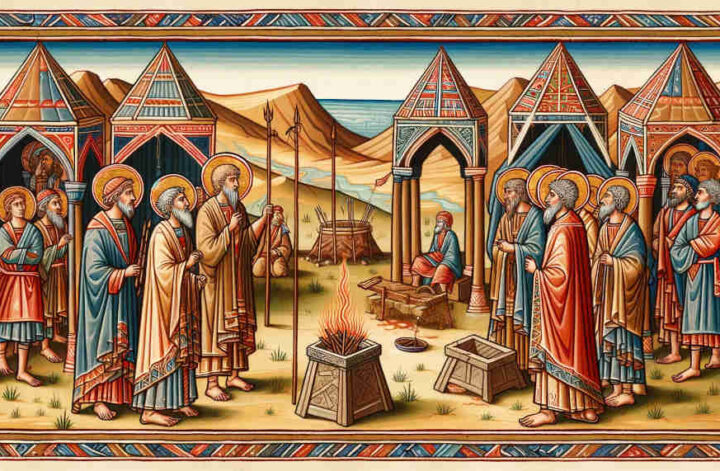Question on Current Jewish Sacrificial Practices
Email from Danielle Fisher: “Dear Rabbi Joshua, I’ve been reading about ancient religious practices and came across the concept of sacrifices in Judaism. I’m curious to know if Jews still perform sacrifices in the modern era?”
Response from Rabbi Joshua
Shalom Danielle, your question addresses an important aspect of Jewish history and its development through the ages. Let’s explore the current stance on sacrificial practices in Judaism.
Historical Context of Sacrifices in Judaism
In ancient times, sacrifices were indeed central to Jewish worship. The Torah prescribes various types of offerings that were to be brought to the Temple in Jerusalem. These included burnt offerings, peace offerings, sin offerings, and others, each with its own specific significance and occasion.
The Temple and Sacrificial Worship
This practice of sacrifice was carried out in the Temple, which was the focal point of Jewish ritual life until its destruction by the Romans in the year 70 CE. With the Temple’s destruction, the ability to perform sacrifices as prescribed in the Torah ceased.
Rabbinic Adaptation After the Temple’s Destruction
After the Temple’s destruction, Rabbinic Judaism evolved to adapt to the new circumstances. Prayer, study, and acts of loving-kindness became the primary means of connecting with God. The Rabbis taught that these practices could replace sacrifices in terms of their spiritual efficacy.
Prayer as a Replacement for Sacrifice
Today, Jews do not perform animal sacrifices. The prayers recited three times daily in Jewish tradition correspond to the times when sacrifices were offered in the Temple. Notably, the Amidah prayer is considered a substitute for the Temple’s sacrificial service.
Modern Views on Sacrifice
In contemporary Judaism, there is a wide range of beliefs about whether the practice of sacrifice will be restored with a future rebuilding of the Temple. Some Orthodox and Conservative Jews pray for the restoration of the Temple and its services, while many Reform and Reconstructionist Jews interpret these prayers symbolically.
Conclusion
Danielle, the practice of animal sacrifice is no longer a part of Jewish religious life. Instead, prayer, personal reflection, and ethical living are the cornerstones of modern Jewish spiritual practice.
If you wish to learn more about the historical practices or contemporary Jewish worship, please feel free to reach out.
Warm regards,
Rabbi Joshua


